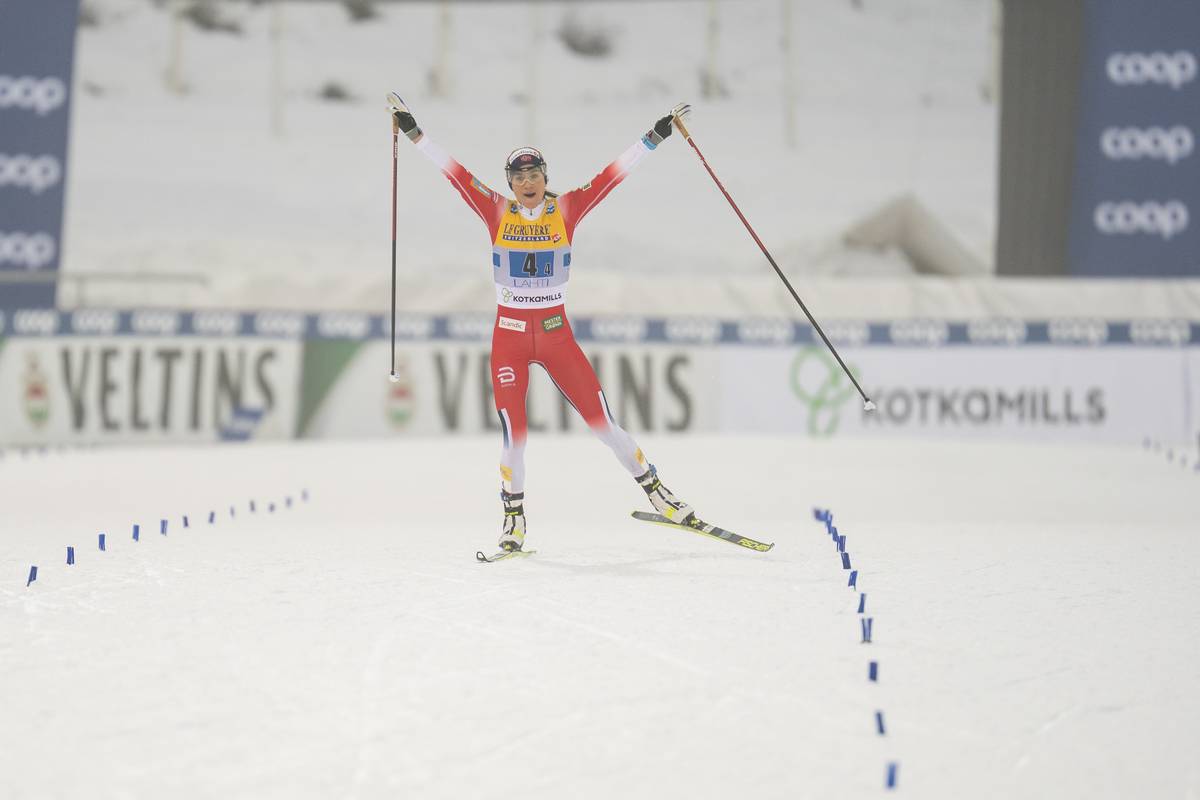
This World Cup coverage is made possible through the generous support of Marty and Kathy Hall and their A Hall Mark of Excellence Award. To learn more about A Hall Mark of Excellence Award or to learn how you can support FasterSkier’s coverage please contact info@fasterskier.com.
It was a foggy morning for the women’s 4×5 k relay in Lahti, Finland. With temperatures above freezing and high humidity, the scene was less of a winter wonderland and more of a pea soup. A low visibility scene in which eleven teams lined up at the start line with nine nations represented. On paper, this was Norway’s race and after yesterday’s podium sweep in the 15 k skiathlon there seemed to be little doubt the Norwegian women were on form. To find the last time the Norwegian women failed to win a World Cup relay one must go all the way back to 2011 in Rybinsk, Russia when Italy bested the field. A major side note – the Norwegians were not present in Rybinsk. One must dig deeper into the records, way back to 2009 in Beitostølen, Norway when the Norwegian’s finished second to the Swedish women. Needless to say, the Norwegian women proved themselves peerless once again and topped the field, with a cumulative time of 49:34.4 on Sunday in Lahti.
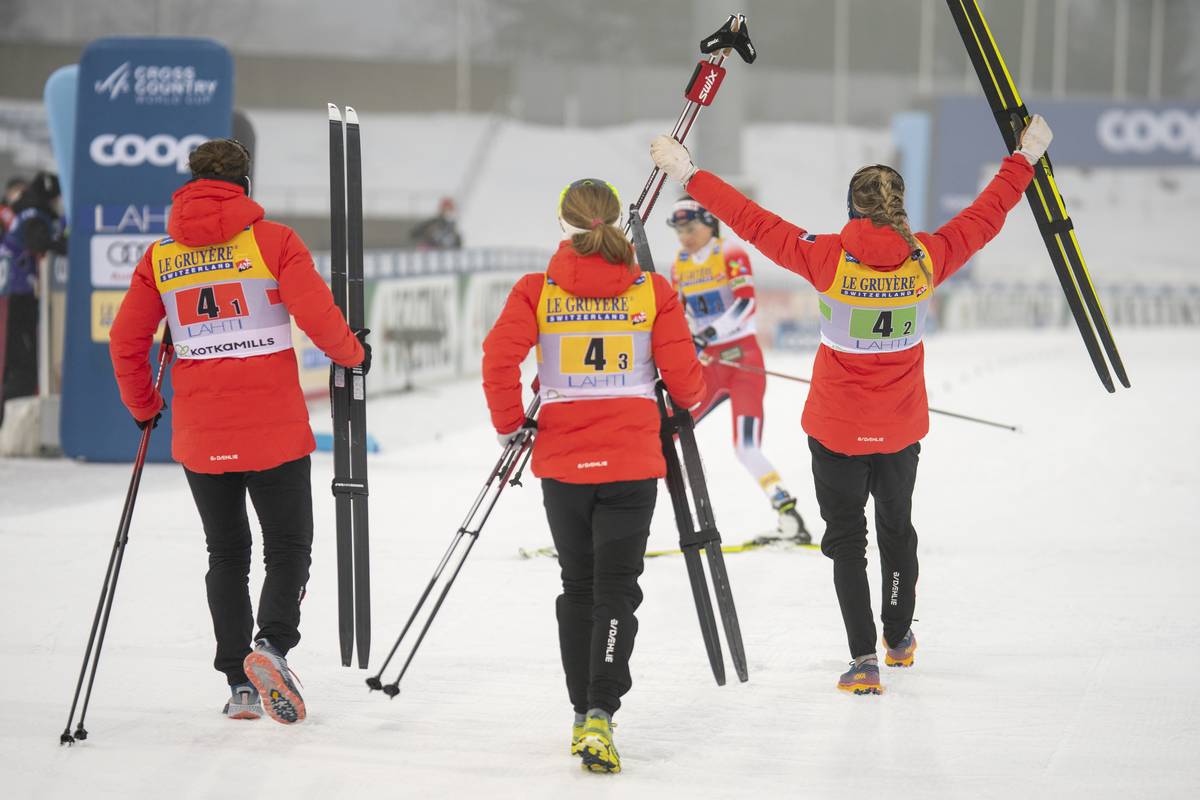
Through the first 2.5 k of toady’s race, a pack of seven women skied together, among them Tiril Udnes Weng who started for Norway and Rosie Brennan who held the scramble leg for the U.S. As the first leg neared to a close Johanna Matintalo of Finland and Charlotte Kalla of Sweden (recently returned to the World Cup circuit), pushed the pace to stretch the group out ever so slightly. Weng tagged off to Theresa Johaug, yesterday’s skiathlon winner, who was closely shadowed by Kerttu Niskanen of Finland, Emma Ribom of Sweden, Jessie Diggins of the U.S.A., and Natalia Nepryaeva of Russia.
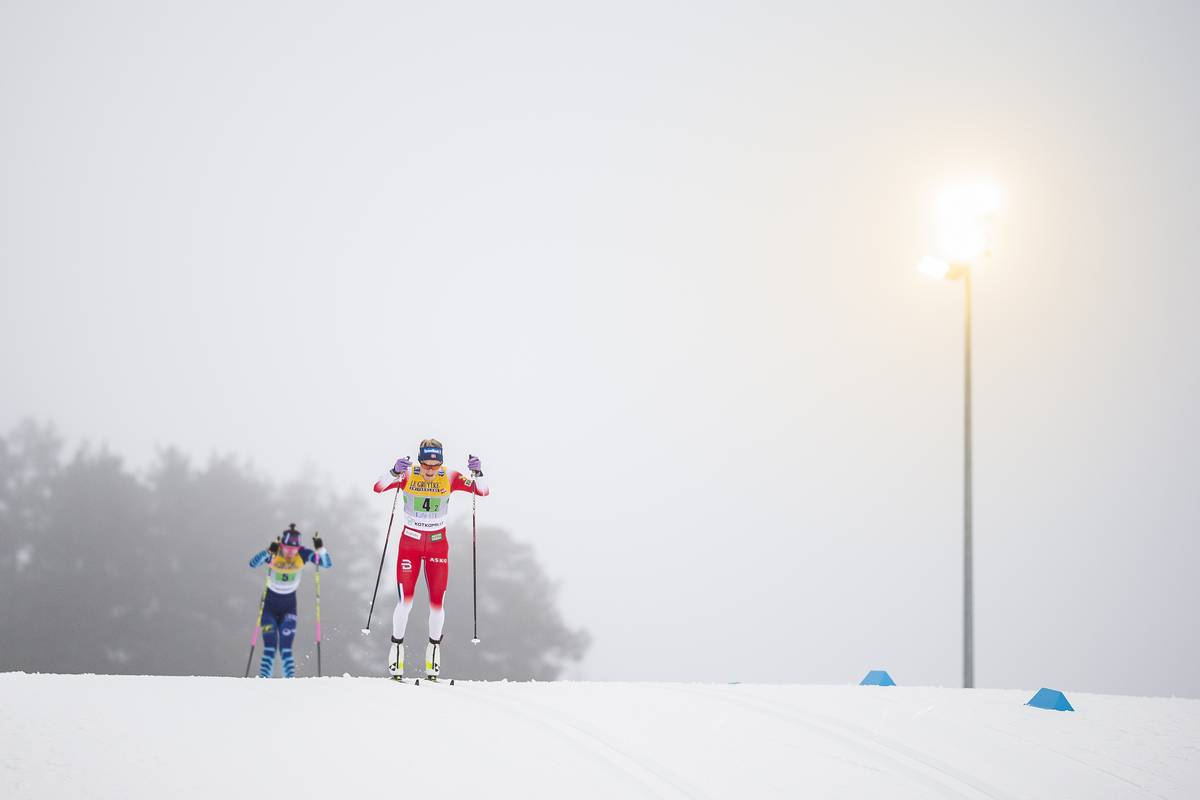
At 6.3 k Johaug (NOR) made her move to the front and turned on the burners, blasting away from the rest of the field in classic fashion. However, the chasers weren’t going to let Johaug stride away uncontested and at 7.5 k Johaug was just +1.6 seconds up on Kerttu Niskanen of Finland with Sweden, U.S.A., and Russia not far behind. By the time the second-leg skiers had completed 5 k, Johaug had widened the gap to +6.9 ahead of Niskanen, while Diggins, further back, tagged off to teammate Sophia Laukli with a margin of +24.5 to the lead.
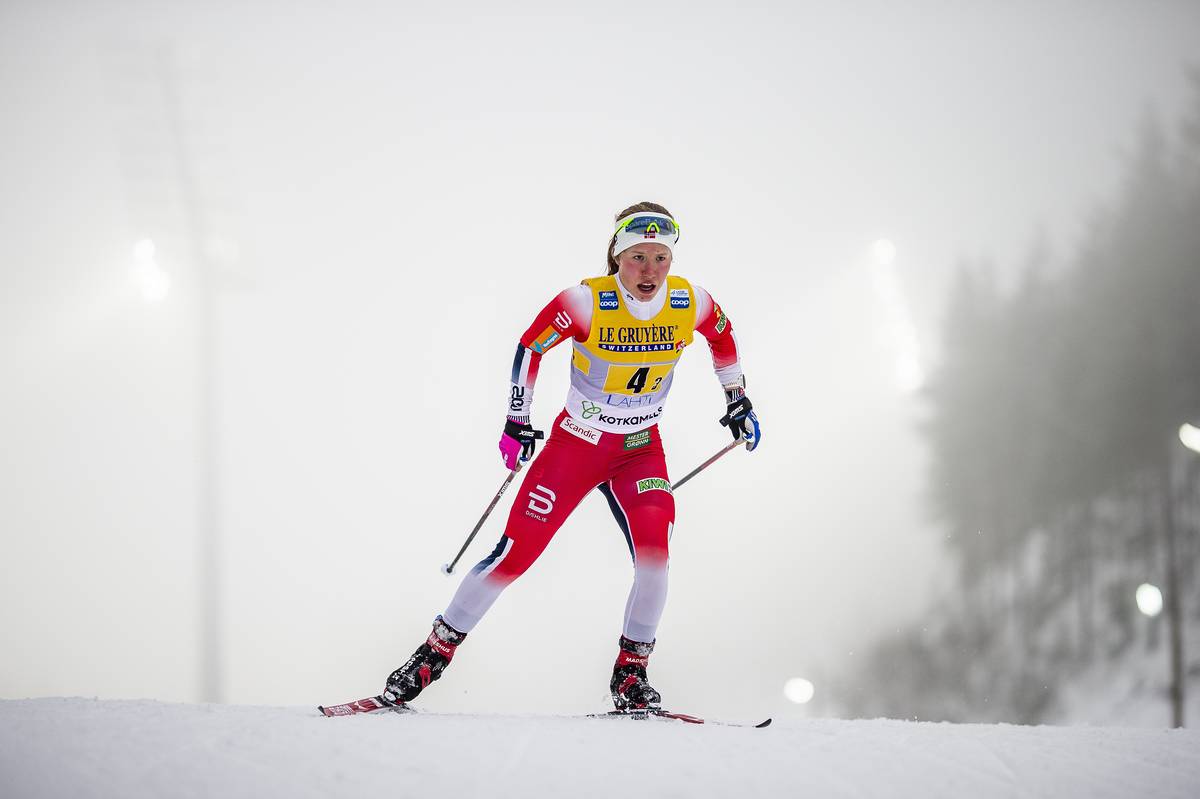
Nineteen-year-old Helen Marie Fossesholm, who had a podium debut in yesterday’s skiathlon, commanded the first skate leg for Norway. At 11.3 k she had grown the gap to +15 seconds over Laura Mononen of Finland, with Lovis Modig of Sweden (+34), Anna Nechaevskaya of Russia (+37.5), and Laukli for the U.S. (+39.2) falling in behind.
In an interview with FIS following the race, Fossesholm said, “I had a great day today in the course. The course demands a high level of technical skills, including a high level of stamina which fits me quite well.” Her springy-step and attitude were evident to viewers as the young Norwegian jumpskated the final climb, navigated the hairpin corner and tagged anchor, Heidi Weng, with a lead of +51.8 ahead of Finland.
As the fourth leg transpired, Weng was out on her own, skiing the final two laps largely out of sight of the rest of the field. She crossed the finish line unchallenged to bring home another victory for the Norwegian team.
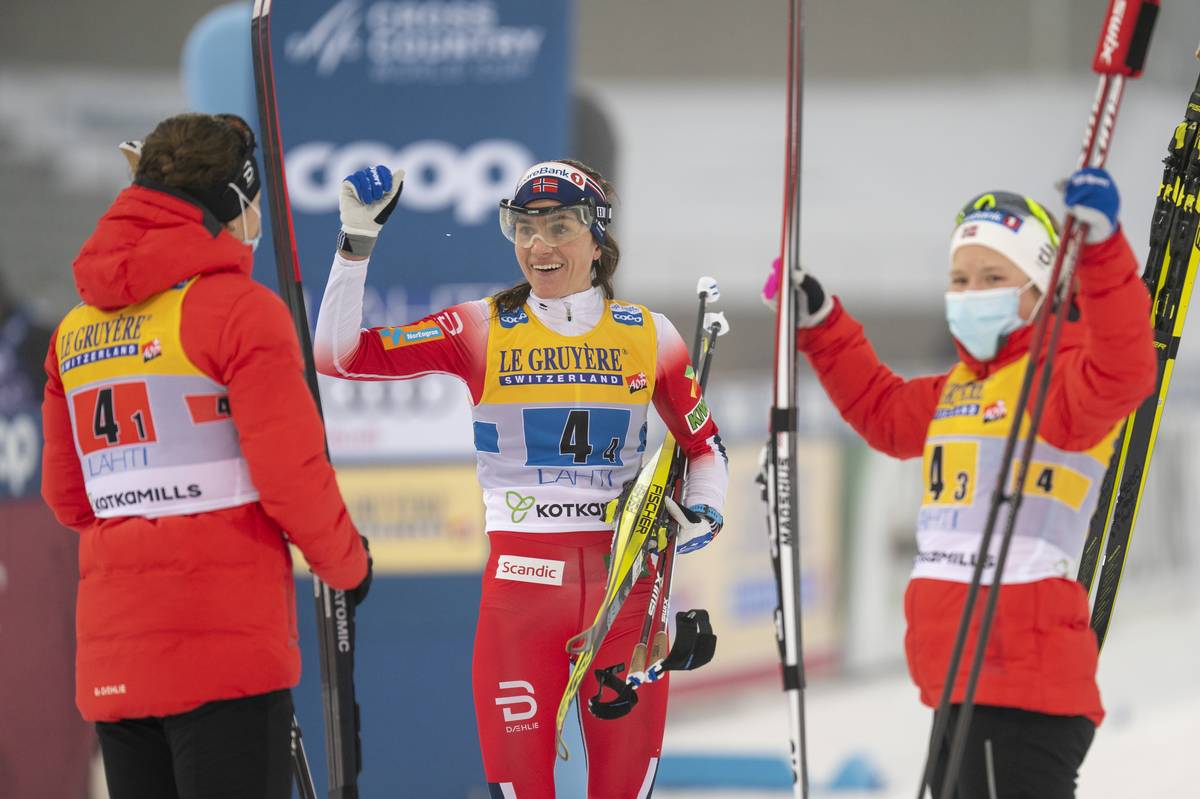
Behind her, Ebba Andersson of Sweden swiftly made up ground on Finland’s anchor, Krista Parmakoski. (Finland I tagged off for the fourth leg roughly 8 seconds ahead of Sweden.) At 16.3 k Andersson caught Parmakoski and as the two skiers climbed out of the stadium for the final time, Andersson accelerated away from the Finn, gaining some ground on Weng and finishing +42.9, making it silver for Sweden. Parmakoski stayed strong locking in for third (+59.5).
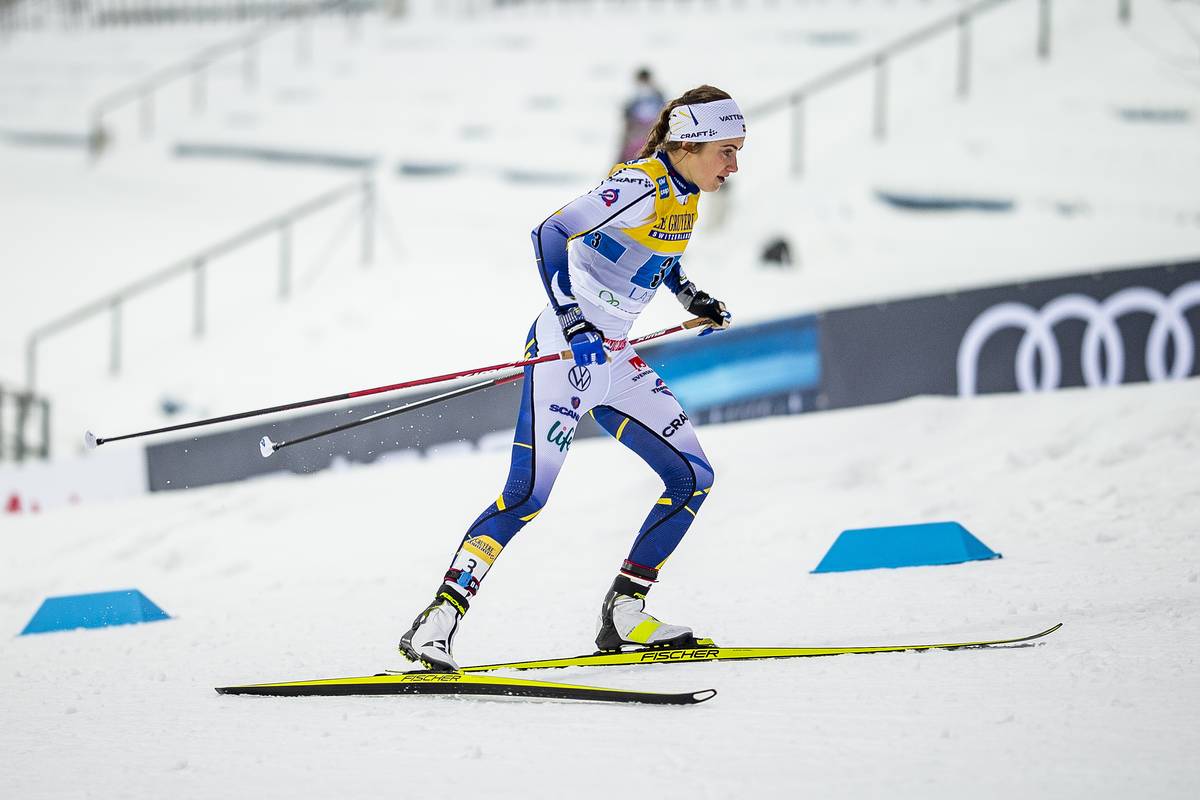
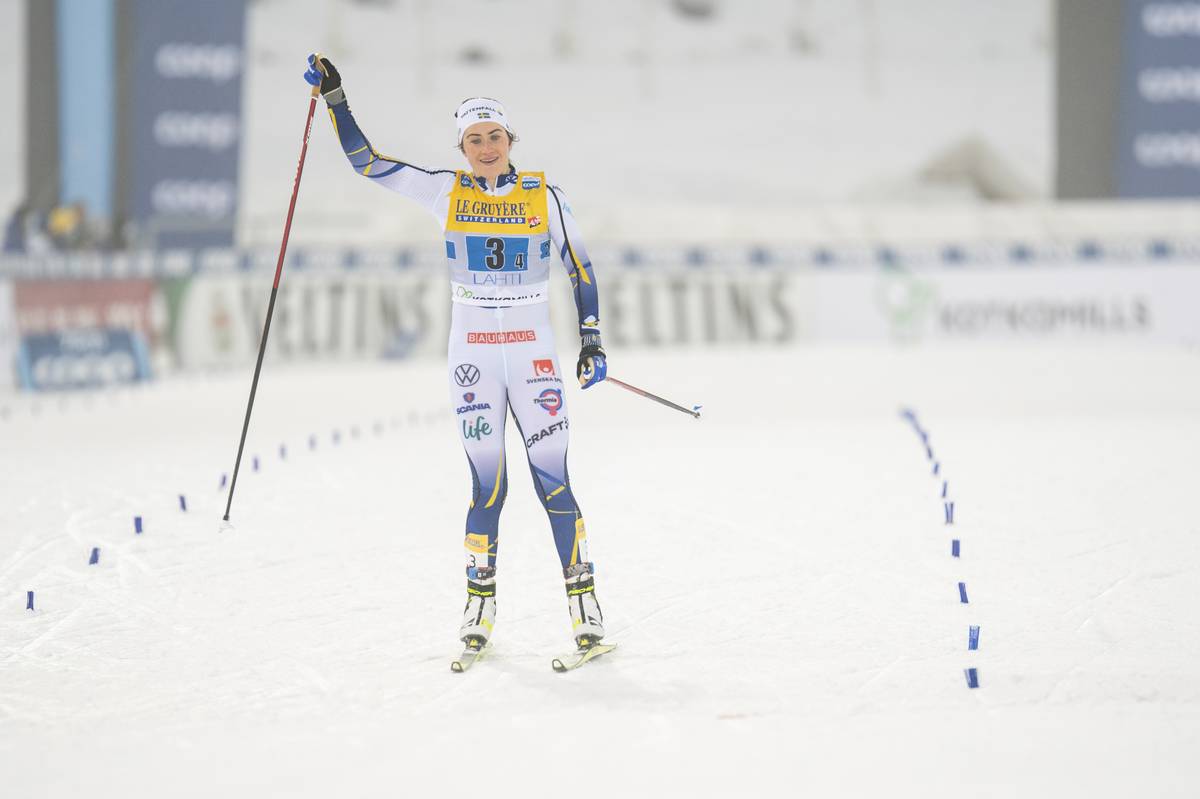
Today’s relay line-up for the U.S. women looked a bit different than it has in the past. In a pre-race interview with FIS, U.S. Cross-Country Program Director Chris Grover said, “It’s an interesting relay for us. We have a couple of women with a lot of experience, Jessie and Rosie, but we also have a woman that this is her first World Cup weekend, Sophia Laukli, skiing for us, and also Caitlin Patterson.”
U.S. skiers who have been recent members of the U.S. women’s relay team, most notably Sophie Caldwell and Sadie Bjornsen, are not racing in Lahti.
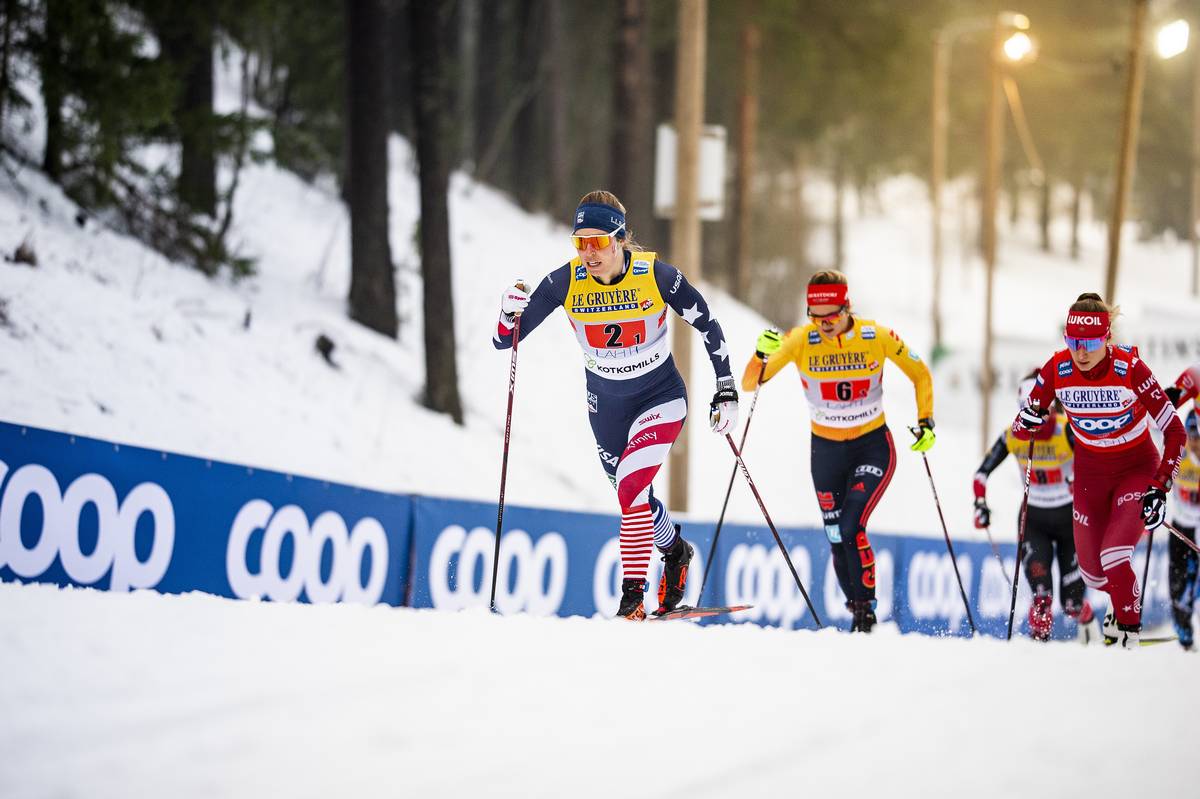

“We are missing a few of our women… so it’s going to be a little bit of a different experience for us and we actually are doing something that we don’t often do and that’s putting Jessie and Rosie in a classic leg, so they’re up front and hopefully we learn a little bit about what their classic performances can be like in a relay.”
The U.S. team ultimately finished fifth (+1:48.6), positioning themselves in back of Russia (+1:30.7) in fourth overall.
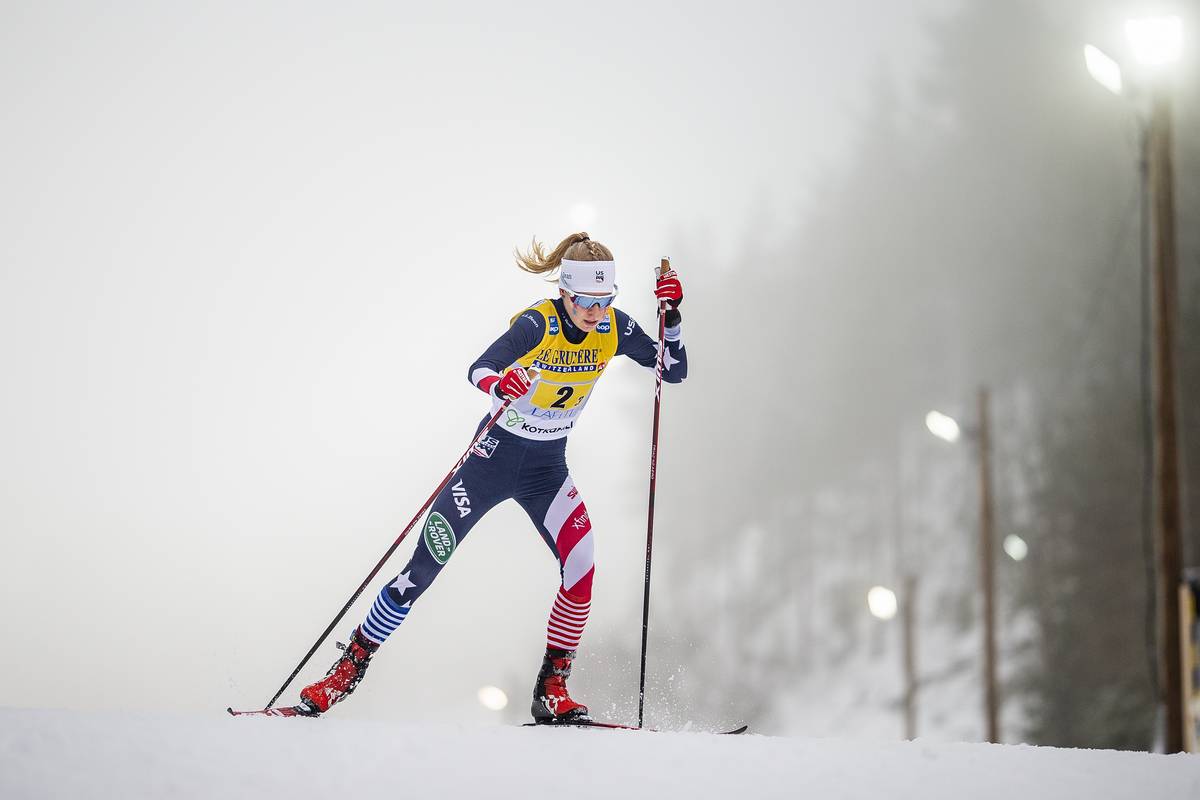
The twenty-year-old Laukli spent the past week racing at Norwegian Nationals before making the trip to Lahti for her World Cup debut. In an email to FasterSkier she wrote, “The races in Norway, I think, definitely helped prepare me more for the World Cup races. It was a pretty intense environment and quite a step up from the college racing I’m used to. So, it was good for me to have the Norwegian National races under the belt to get a little more comfortable with this higher level racing. I also think it helped to come off those races right into the World Cup so I was already in that racing mindset. I’m definitely someone who races into shape so being able to race in Norway and quickly transition to the World Cup worked to my advantage.”
Regarding her position as leg three in today’s relay Laukli said, “it’s safe to say I was a little stressed and nervous for the relay, just from knowing the past successes of the US women. I tried not to put too much pressure on myself, although that was easier said than done. The other girls were really great though and making sure I felt no huge expectations, and that I should just focus on skiing my own race. That was really helpful to hear. Once I started my leg and in the end, it was really just a lot of fun and I feel super lucky to have gotten to do a relay for my 2nd [World Cup] race!”


Diggins, who skied the second classic leg as opposed to her traditional spot as skate anchor, said, “After a decade of anchoring the US relay team, I was very excited to try something a little different! For the first time in my life I asked to ski a classic leg and it was really fun to try something new. I think skating will always be my first love, but I’m finding a better relationship with my classic skiing over the years and this was a great place to work on improving it!”
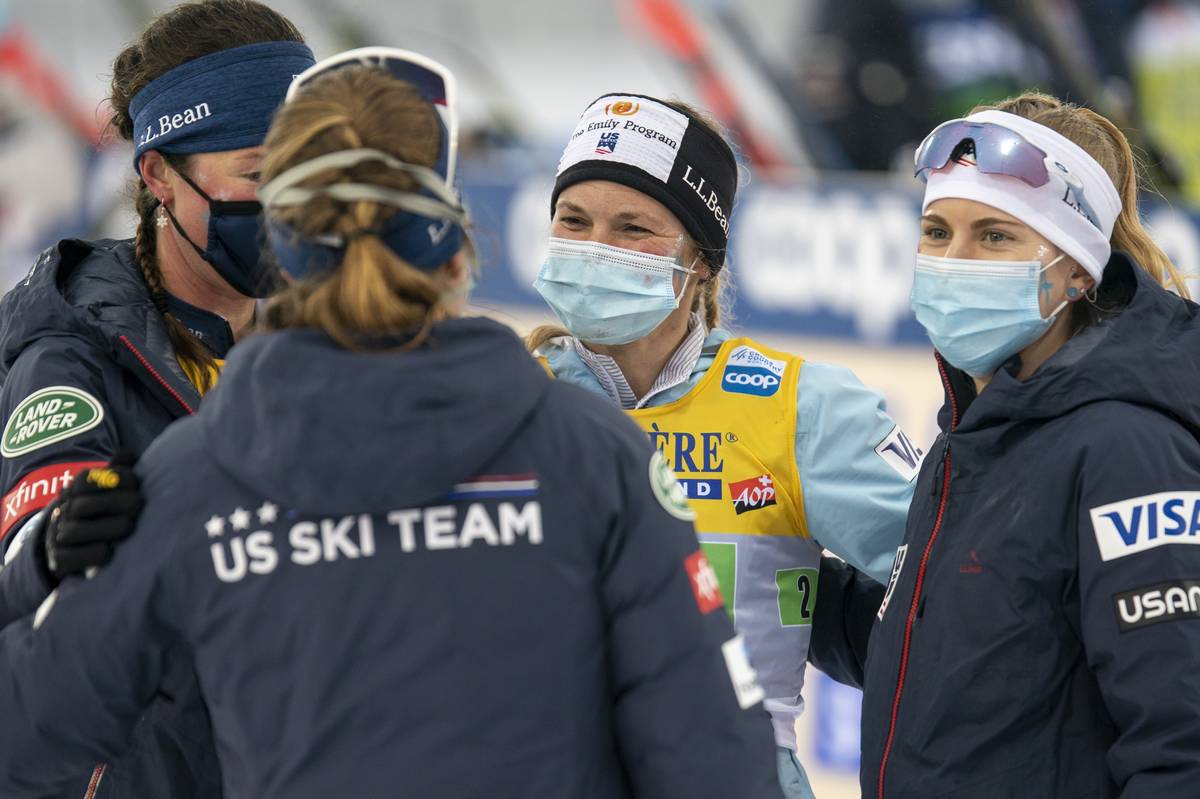
“The highlight of my day was, of course, getting to hand out the socks and put the USA face paint on our guys and gals,” Diggins continued. “I love the team spirit of relay day and it keeps racing fun! Really proud of this team (the men’s and women’s) for giving it our all this morning!”
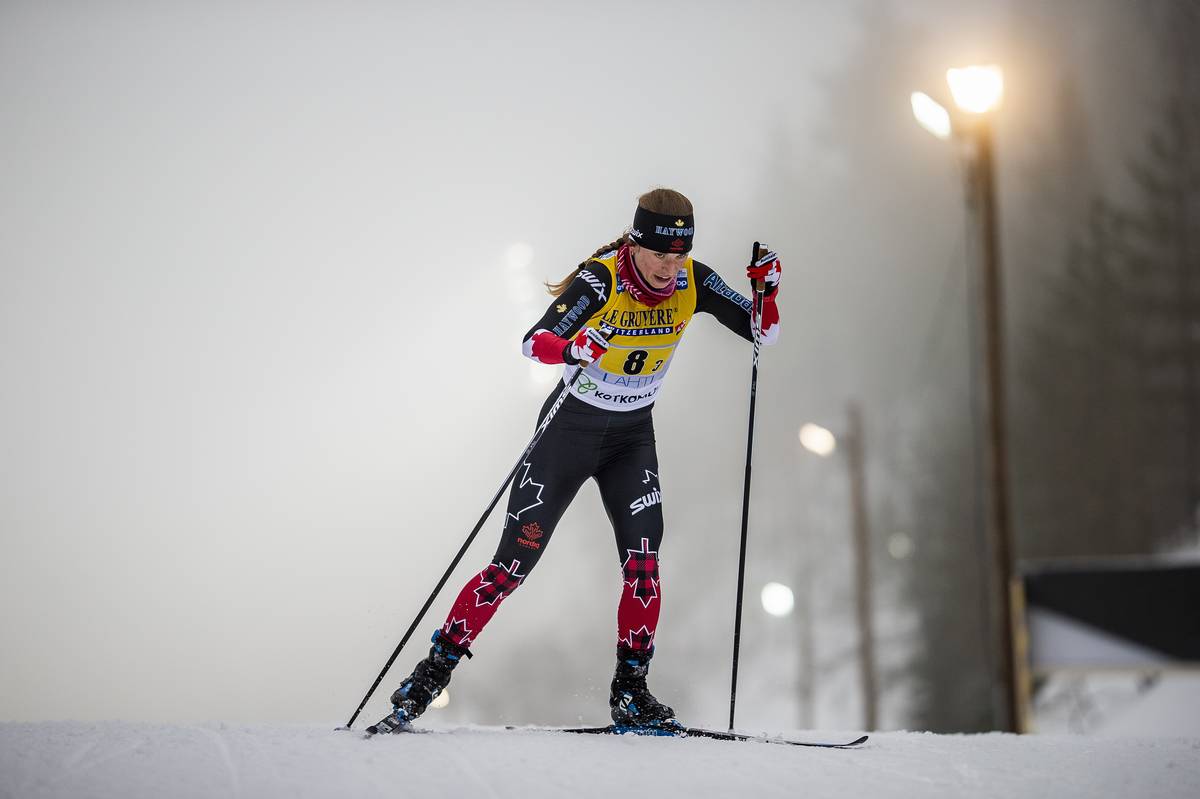
The Canadian team, consisting of Katherine Stewart-Jones, Dahria Beatty, Cendrine Browne, and Maya Macisaac-Jones finished eighth. This is Canada’s first weekend of World Cup racing after missing Period One and the Tour de Ski.
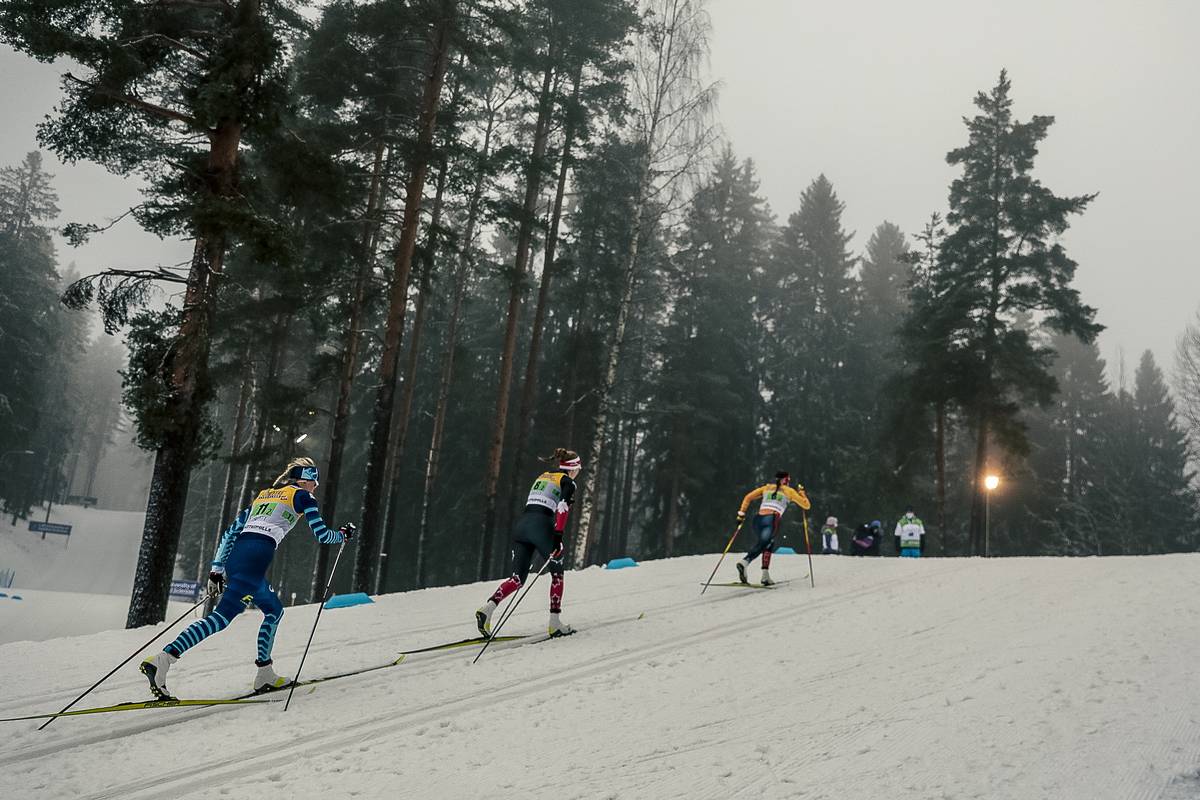
Results: Women’s Relay
Ella Hall
Growing up in Washington’s Methow Valley, Ella was immersed in skiing and the ski community from a young age. From early days bundled in the pulk, to learning to ski as soon as she could walk, to junior racing, a few seasons of collegiate racing, and then to coaching, she has experienced the ski world in many forms. Now, as a recent graduate from Dartmouth College, she finds herself living in France splitting her time between teaching English at a university in Lyon, avidly following ski racing (and now writing about it!) and adventuring in the outdoors as often as possible.



